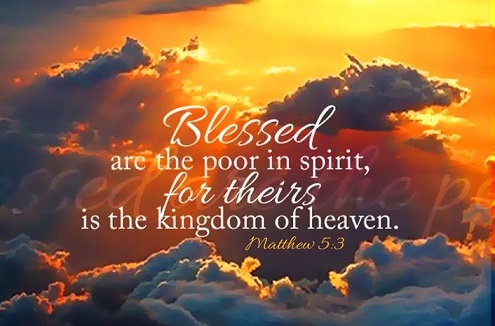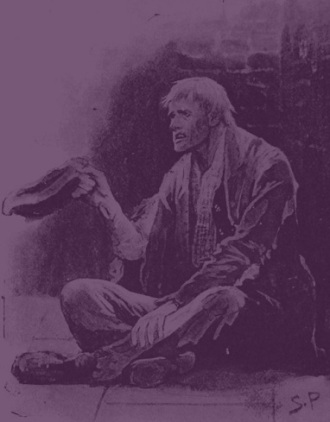
January 22
Entering and experiencing the Kingdom (cont.)…
Two) We must be poor in spirit… One of the great hidden enemies of most people, even many Christians, is being “rich in spirit.” This is why Jesus was so hard on the young man we have come to know as the “rich young ruler.”

This young man lived a highly moral life. He did all the right things. He was earnest about the things of God. But, like Nicodemus, he knew there was a deep lack in his life. Also like Nicodemus, he sought out the Lord. The gospels record that Jesus confronted the young man at the heart of the problem. “Sell everything you have and give to the poor, and you will have treasure in heaven. Then come, follow Me.” (Luke 18:22)
We could easily conclude that, with His words, Jesus was addressing the evils of money – but we would be wrong! Jesus was not focused upon the young man’s wealth, but his heart of self-sufficiency. The young man was trusting in his own ability to provide for his own needs. But even in his great material wealth, he knew that he was painfully empty.
We would think that the anguished state of his condition would make this young man eager to respond to Jesus’ words of truth. But Scripture tells us that he would not be swayed. Jesus gave him the answer he was seeking, as well as the promise of eternal wealth, but the rich young ruler went away saddened. The thought of material poverty was greater than the reality of the spiritual poverty that plagued and tormented his soul.

In truth, the “rich young ruler” could not bear to live life as “poor in spirit.” For this reason, he walked away from the Kingdom of God – and from the King that could have made his life truly rich. In the end, Scripture records that: “Jesus looked at him (with great sadness) and said, “How hard it is for the rich to enter the kingdom of God! Indeed, it is easier for a camel to go through the eye of a needle than for a rich man to enter the kingdom of God.”” (Luke 18:24-25)
Being rich, or having material wealth, is not Jesus’ focus. Money, in and of itself, is never portrayed as evil in the Scriptures. It is the self-sufficiency, that material wealth brings, which prevents us from entering the Kingdom of God. True life is only discovered when, from our hearts, we are utterly dependent upon The King.
To possess the Kingdom of God we must be poor in spirit.




